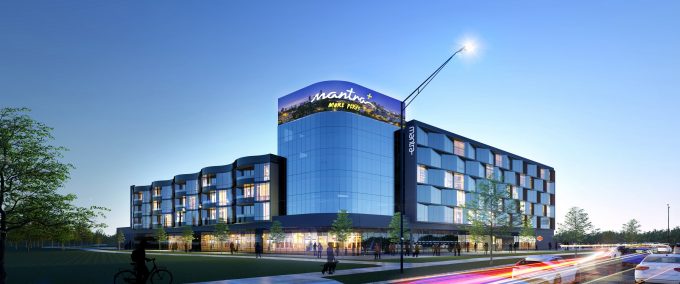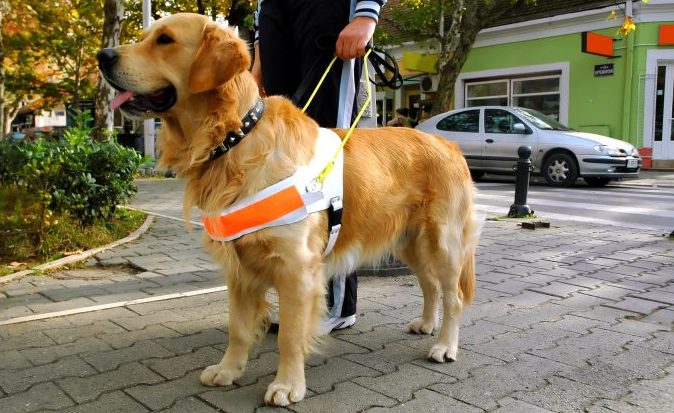
A realistic bonanza or expensive ego trip?
A challenge for the South East Queensland region to host the 2028 Olympic Games is, amazingly, progressing to its second stage.
Brisbane’s lord mayor Graham Quirk is asking 11 SEQ mayors to collectively spend around $2.5 million of their ratepayers’ money on a detailed feasibility analysis that would “crystallise a case study for infrastructure” in the region. Among the mayors are Paul Antonio (Toowoomba), Paul Pisasale (Ipswich), Karen Williams (Redlands), Greg Christensen (Scenic Rim), Graham Quirk (Brisbane) and Sunshine Coast’s Mark Jamieson.
Ipswich’s Pisasale, who has stated he is “excited” by the prospect, insists the cost represents only “about 70 cents” for each of the three million ratepayers between Noosa and the Gold Coast and west to Toowoomba.
It follows a year-long “pre-feasibility study” initiated by Brisbane’s Quirk, that recommended a new 60,000 seat Olympic stadium be located near the Brisbane CBD along with the Olympic village and the media village. In fact, six of the eight proposals outlined in the feasibility study centre around a strong focus on Brisbane. Regional venues, the report suggests, could be used “selectively” for sports outside the main venue. Surfing, for example, is one of the sports to be added to the Tokyo 2020 Olympics, and could be hosted on the Gold or Sunshine coasts. It also suggests the triathlon, marathons and equestrian events could be held in Toowoomba or on the Scenic Rim, hockey in Ipswich plus the $1.4 billion investment in new 2018 Gold Coast Commonwealth Games infrastructure “offering flexibility”.
Premier Annastacia Palaszczuk said Queensland would be better off “channelling all our enthusiasm and commitment” into delivering the Commonwealth Games. “I don’t believe it [the Olympics] is realistic at this stage,” she said.
Former Queensland premier and 2018 Commonwealth Games Corporation chairman Peter Beattie stressed, “The issue is the Olympics are very expensive and it really requires an enormous contribution by the federal government to make it work.”
The state’s trade and infrastructure minister Jackie Trad has offered cautious support for a south-east games hosting but she said it would have to stack up in the bid’s feasibility study. Ms Trad said the state government’s experience with delivering the infrastructure needed for the Commonwealth Games brought into focus the sheer scale of the cost involved.
She said the experience of Rio brought those concerns to the fore. “There’s a real fine line to tread in terms of making sure the enormous investment that you make leverages off legacy infrastructure and legacy outcomes for the city and the region that is hosting a major event.”
Brendan Lyon, chief executive of peak body Infrastructure Partnerships Australia says it would be just the trigger the Sunshine State needs to rediscover its mojo. “An Olympic bid would be an overwhelmingly good thing for Queensland to work towards as the state needs its confidence back.’’
Brisbane Airport Corporation chief Julieanne Alroe said: “An Olympic bid from SEQ has great potential for establishing its profile internationally. It would be a demonstration of the sophisticated infrastructure and capability of Queensland.”
Gold Coast mayor Tate is cautious about south-east Queensland hosting the 2028 Olympics, saying SEQ’s three million ratepayers would have to contribute around $1.6 billion to stage the event.
Interest needs to be expressed to the IOC by September 2019. The final vote would take place in 2021, leaving barely seven years to complete all of the planning, infrastructure, accommodation and services should the SEQ bid be successful.
Once the expression of interest is submitted to the IOC, there comes the bid itself. The cost of planning, hiring consultants, organising publicity events and the necessary travel consistently falls between $50 million and $100 million. Tokyo spent $150 million on its failed 2016 bid and about half that much for its successful 2020 bid, while Boston and Toronto decided they could not afford the $60 million necessary for their possible bids.
Tokyo – host in 1964 – is again holding the games in 2020 after losing out to Rio in 2016.
Los Angeles (its 3rd), Budapest, Paris (its 3rd) and Rome (its 2nd) have already put their hands up to host the 2024 games with Hamburg a further possibility.
In Boston, local opposition against the cost of hosting the event saw the Massachusetts city abandon its bid for the 2024 Olympics, after ratepayers passed a referendum refusing additional public spending for the games. “Probably the most crucial issue always came down to the taxpayer guarantee, the fact that the IOC was requiring Boston 2024 and the city to sign a guarantee that the public would be liable for cost overruns. The public was savvy enough to see through that and say holding the bag [was] not an acceptable situation for Massachusetts taxpayers,” said Chris Dempsey, former co-chair of No Boston Olympics.
The 1976 Olympics in Montreal came to symbolise the fiscal risks of hosting the games. The projected cost of $124 million was more than $2.6 million short of the actual cost, leaving the city’s taxpayers with millions of dollars of debt that took nearly three decades to pay off. [In 1972, Denver became the first and only chosen host city to reject its Olympics after voters passed a referendum refusing additional public spending for the games.]
So who is SEQ up against in 2028? The losing three 2024 cities are expected to be automatic contenders for the 2028 games. Other cities that have already made noises about a 2028 bid include Berlin, Milan, Amsterdam, Doha in Qatar, Baku in Azerbaijan, Kuala Lumpur/Singapore and Johannesburg (no African city has yet hosted an Olympics). Toronto decided it could not afford the $60 million necessary for a 2028 bid.
So that is what SEQ is up against.
Operational costs make up a significant part of hosts’ Olympic budget. Security costs have spiraled upward following the 9/11 attacks and other terrorist atrocities — Sydney in 2000 spent $250 million while Athens in 2004 spent over $1.5 billion, and costs have remained between $1 billion and $2 billion since.
A major issue is the “white elephants” left over after the games have been forgotten – expensive facilities that, because of their size or specialised nature, have limited post-Olympics use. These often impose costs for years to come. Sydney’s Olympic stadium costs the city $30 million a year to maintain.
One area of economics that pervade such an expensive one-off outlay is that much of the costs use up public spending that could have been spent on other priorities. Servicing the debt that is left over after hosting the games can burden public budgets for decades. While Greece’s billions in Olympic debt helped bankrupt the country, it took Montreal until 2006 to pay off the last of its debt from the 1976 games, and the debt and maintenance costs of the Sochi 2014 winter games will cost Russian taxpayers nearly $1 billion per year for the foreseeable future.
According to Quirk’s “pre-feasibility study”, the major shortcoming of the region is the lack of a coordinated public transportation plan. The intention under the “linear city plan” is to have travel times from Brisbane to the Gold and Sunshine coasts limited to under 45 minutes via fast trains. Now providing transport infrastructure has not been a success story in Queensland for decades – remember the Beattie government’s promise to build a rail link to Caloundra by 2015 that has yet to start. And there are the many unfulfilled promises for the Bruce Highway. Then again, Sunshine Coast’s mayor Jamieson sees the 2028 Olympic Games as a catalyst to finally getting some transport infrastructure fast tracked.
What is frightening in hosting the Olympic Games is the cost overruns. For the Brazilians, the cost overrun at Rio of only 51 percent is a pretty good outcome considering the spectacular budget blowouts experienced by other hosts, such as London in 2012, where the full end cost tripled to $15 billion. In fact, the Saïd Business School at the University of Oxford found nearly half of all games have cost overruns of more than 100 percent.

Often intangible benefits such as increased tourism and employment multipliers are cited as justification for hosting such an expensive one-off event but, on close scrutiny, it is hard to make these claims stack up either. Sydney, for example, suffered a major slump in tourism after the 2000 Olympics.
What about income? Well the IOC keeps half of the $2.6 million in TV rights – which represents the single largest slice of money generated by the games. Any other income is from visitor expenditure and a little from sponsorships. It is worth noting that Los Angeles (1984) was the only city to turn a profit on hosting the Olympics.
Hans Erik Tuijt, head of global sponsorship at Heineken, the world’s third-largest brewer, maintains, “too many brands attach themselves to the Olympics; the landscape is too cluttered, making it hard for the biggest sponsors to stand out from smaller ones”.

So where are we now? Gold Coast mayor Tate has confirmed his council would contribute between $300,000 and $400,000 to put the $2.5 million bid together. Assuming the remaining councils cough up “population pro-rata” amounts, the new feasibility study will “crystallise” SEQ’s bid for the 2028 Olympic Games.
A growing number of economists argue that both the short and long-term benefits of hosting the games are at best exaggerated and at worst nonexistent, leaving many host countries with large debts and maintenance liabilities.
Amazingly, it seems the people that will have to pay for it seem to want the Olympics. An exclusive Galaxy poll for The Courier-Mail shows 62 percent of people support a possible bid for the 2028 event. Only 30 percent oppose the idea, with eight percent uncommitted.

AccomNews is not affiliated with any government agency, body or political party. We are an independently owned, family-operated magazine.







Good article, Graham! I really wonder how many of the 62% of people who supposedly support this venture will do so when they discover how much their rates, charges and taxes will go up when the “forecast” budget blows out as it always does!
I, for one, am not in favour of spending $2.5 million on some sort of feasibility study!
Unless the extortionate costs for running this “festival for satisfaction of over-inflated IOC egos” can be reined in, the Olympics face a bleak future.
Of course, so long as we have politicians who are happy to waste the taxpayers’ dollar on bread and circuses in the hope it might get them a first class round the world trip (at taxpayers expense) to “study” past Olympics, those same politicians will remain ready cannon fodder for the exploitative members of the IOC who will continue to play one pollie off against the next pollie — so that the IOC members can also enjoy first class round the world travel to “check out” the bona-fides of each competing city!
And so this terrible merry-go-round keeps going round and round! And guess who eventually picks up the tab for all this largesse? If you are a rate payer or a tax payer — YOU DO!
Mike “I am over it all” Butler